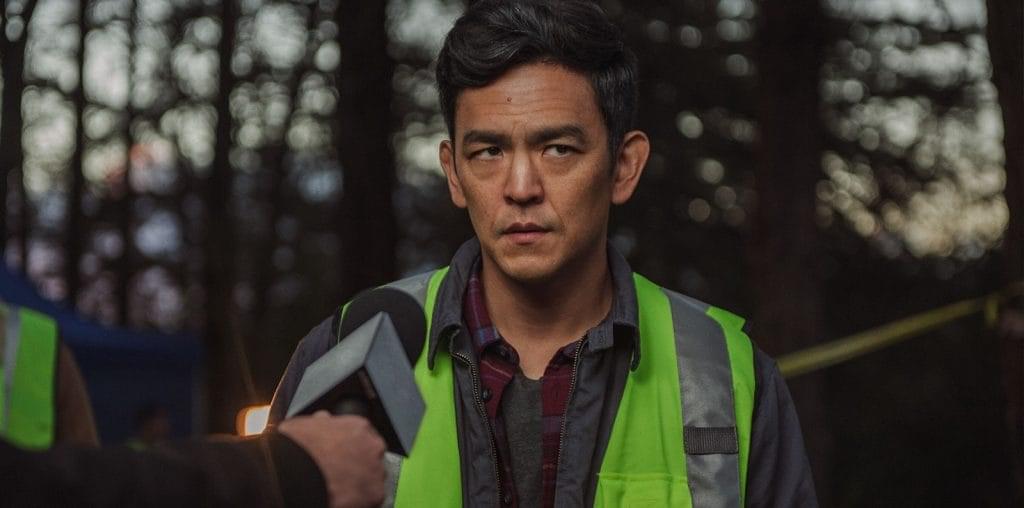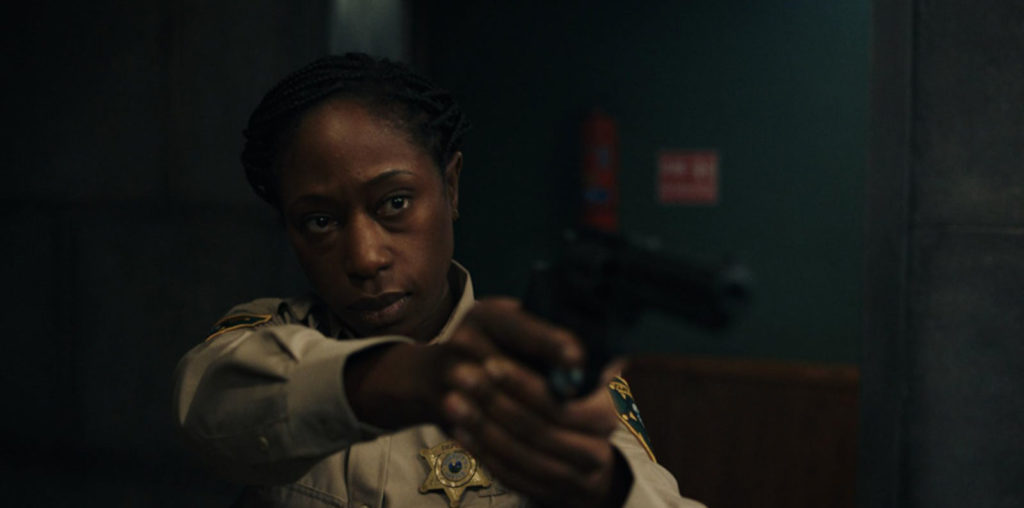
It’s been a very long time since we’ve been treated to a real science fiction movie. Lately the genre has been solely focused on the surface elements – the spaceships, the creatures, the battles, the blasters, the laser swords, the aliens and the hardware. (All tied into merchandising and toy sales of course.) Whatever happened to exploring the world of true science fiction? You know, ideas. Remember those? Great sci-fi deals with humankind’s reaction to the unknown. How a society or a person may be affected by some evolutionary leap whether physical or technical. Steven Spielberg’s “A.I.: Artificial Intelligence” is a return to sci-fi in true form.
In a world torn apart by ecological catastrophe, many of life’s mundane tasks are now carried out by “mechas,” mechanical humans. “Orgas,” organic humans, hold a certain disdain for the mechas because they’ve become so dependent on them. An employee of Cybertronics (Sam Robards), a successful mecha manufacturer, and his wife (Frances O’Connor) have suffered greatly since their son was cryogenically frozen while a cure to a killer virus can be found. This currently childless couple becomes the test case for a new product line from Cybertronics for parents facing this crisis. They become the owners of David (Haley Joel Osment), a mecha boy. He joins the family with a mother unwilling to accept a replacement for their afflicted son. Soon, she realizes the doll-like robot may actually be the key to healing her loss. She chooses to make the serious commitment to keep the mecha and activate his emotion chip which will forever bound David to his newly adopted mother. Complications arise when their real son Martin returns home cured. Martin’s jealousy forces the torn mother to give David up and send him into the cruel, mecha-hating world. It’s here that he meets up with Gigolo Joe (Jude Law) a fully functioning sex robot on the lam after being framed for murder.
David’s dilemma is that he feels the unrequited love for his mother. This love quickly becomes a curse since she will only accept him if he becomes a “real” boy. This sends David on a quest with Joe to find the “blue fairy” that he read about in Pinocchio. He believes that the blue fairy will magically turn him into real boy and his mother will finally accept him. Unfortunately, we’re painfully aware that this journey is doomed from the start. Every step is filled with heartbreak and loss. It’s simply depressing to see David go about his merry way knowing full well, he’ll never achieve his goal. Certain scenes are simply painful to watch including one in which David questions Dr. Know, a computer who will answer any question. He enthusiastically asks Dr. Know how to find the blue fairy and endeavors to combine fact and fiction to make his dream come true.
Osment proves with this performance that he is simply the best child actor on the planet. As the tragic character, he conveys the hurt while fully believe-able as a mechanical thing. One interesting device used to make Osment look more artificial is a subtle use of make-up. His skin has a slight glisten or shine to it, which is considered a no-no when putting powder on an actor. The traditional goal of a make-up artist is to get rid of any glow or shine. This understated glossiness is eerie and makes Osment’s skin look, well, plastic and artificial. It’s a small yet effective detail worth noting. Another more noticeable tick in Osment’s performance is the fact that he does not blink once during the entire movie. Talk about dedication. Jude Law’s portrayal of the sex mecha Joe is both haunting and humorous. On the effects side, the “A.I.” is nothing short of a milestone with incredible futuristic vistas and creatively designed robots. Though reminiscent of films from the past, you haven’t seen anything as fully realized as this. David’s sidekick, a mecha teddy bear accompanies him everywhere, and while adding little to the story, it’s just plain cool.
Many have criticized “A.I.” for its radical shifts in tone. The first third feels like it was directed by Stanley Kubrick (for a detailed analysis of Kubrick’s influence on A.I., read Film Threat’s feature story BICENTENNIAL BOY: KUBRICK’S RUBRIC), the second part is much like a post-apocalyptic trip to “Mad Max: Beyond Thunderdome.” And the final third is a trip down memory lane back to Spielberg’s “Close Encounters of the Third Kind.” The ending is a letdown and the film could quite easily have been released without the final third. In fact there are two places the film could easily have ended, and though not very satisfying, would have been better than the final schmaltz Spielberg serves up.
However, I applaud the fact that Spielberg felt confident enough to challenge the regular popcorn movie-going audience with some substance. It’s a rare find in a summer movie – one that sometimes feels like an art film. The tone shifts are a refreshing break from the predictability that often comes with those pre-determined big “blockbusters” pictures. Though the film is far from perfect, (mainly Spielberg’s clunky writing and that final third) merely the attempt to explore true science fiction themes makes “A.I.” admirable.
So, what do you think? Discuss the film in our Hate Mail section: STEVEN SPIELBERG’S “A.I.”: ARTIFICIAL EMOTION?>>>

